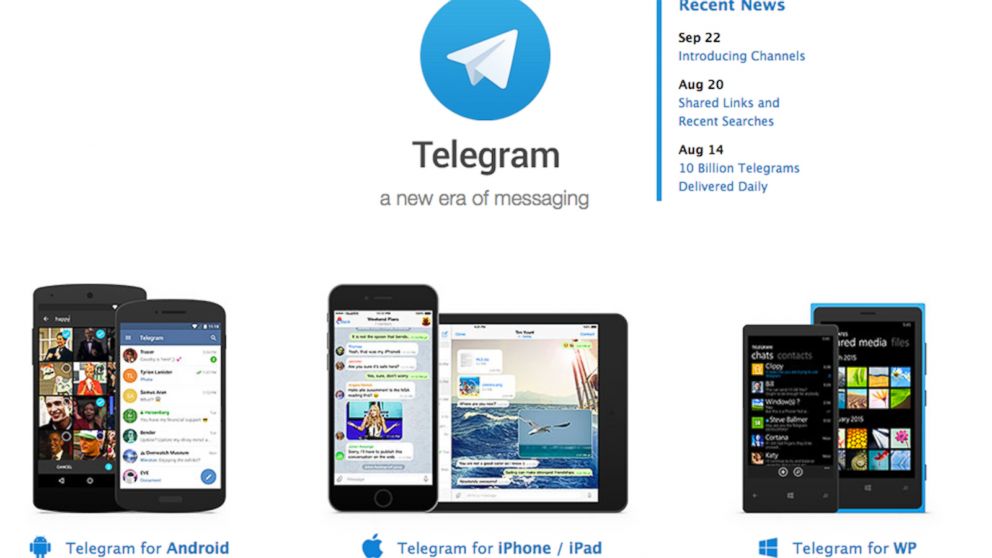Telegram App: Your Questions Answered About the Messaging Service
Telegram founder blocks public channels he says belong to ISIS.

— -- Sending a Telegram has been given a new meaning in the digital age.
A messaging service taking its name from the old-school method of communication is in the spotlight after its founder blocked public channels on the site that he said espoused ISIS-related content. While it's unclear the extent to which ISIS may be using the service, the group has been known to turn to social media to spread propaganda and recruit followers.
Telegram founder Pavel Durov said today that privacy remains "paramount" but said deleting some public channels -- such as those he said promote ISIS propaganda -- was fair game. The company said in a tweet the channels were identified after users reported them for abusing its policy.
Here's a look at how the service works.
What Telegram Is
Think of Telegram as a super secure hybrid of email and text messaging. The free service, which was launched in 2013, allows users to send text and multimedia messages privately, with groups and also through public channels.
What's the Difference Between a Chat, Group and a Channel?
Chats are private, encrypted messages. Groups are private larger discussions available for as many as 200 users, while channels -- like the ones Durov said he banned -- are public broadcasts.
Why Is Telegram Attractive to Security Conscious Users?
Telegram offers two layers of secure encryption for its chats.
"Telegram’s special secret chats use end-to-end encryption, leave no trace on our servers, support self-destructing messages and don’t allow forwarding," the company's website reads. "About the only thing secret chats don’t have is cloud storage -- they can only be accessed on their devices of origin."
Telegram's team is so confident in the security of its messages, it's willing to put its money where its mouth is by offering a $300,000 reward to anyone who can prove they have deciphered a private message, according to the company's website.
What Telegram Says It Won't Touch
What users do privately is their own business, according to the service's current FAQ section, which reads: "All Telegram chats and group chats are private territory of their respective participants and we do not process any requests related to them."




